President’s Welcome
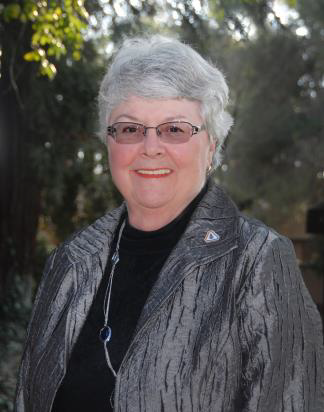
Welcome to San Joaquin Delta College!
Whether you are a new student or a continuing one, the Board, the faculty, the staff, and I want to thank you for choosing Delta. We hope that you will find this catalog informative and useful as you pursue your studies here at the College. If you are a prospective student but still undecided about whether to attend Delta, we believe this catalog has all the information you will need to help you make your choice.
This catalog provides a wealth of information about Delta College. You can read about the mission, vision, accreditation, rich traditions, and history of the College. You can learn about all of the transfer, Associate in Arts and Associate in Science degrees, Career Technical Education Certificate programs, and the wide variety of courses the College offers. You can find out about how to apply for admission, how and when to register for classes, how to pay for college, and how to transfer to a four-year university. You can also learn about College policies and regulations that you will be expected to follow. Finally, you will be able to find information about all the services the College offers and whom to ask for help when you need it.
Delta is a great “first choice” college. Delta is very affordable, particularly if you are preparing to enter the workforce or to transfer to a bachelor’s degree-granting institution. To help you finance your work at Delta, we offer many scholarships and other financial aid options. Our excellent, hardworking faculty are widely known for their strong teaching skills and their personal interest in students and student success. We also have a highly-skilled, friendly staff and very strong student support services for all students including those with special needs. Assessment of your entering skills guides appropriate placement into courses, orientation helps you “learn the ropes,” and highly-trained counselors assist you in developing focused, realistic student educational plans that ensure that you realize your educational and career goals without delay. These three steps, all part of California’s Student Success Initiative, will give you the foundation you need to be successful. The College also offers a wide array of clubs you can join, sports you can participate in and sporting events you can attend, and arts and cultural events that will enrich your college experience.
In short, we at San Joaquin Delta College are eager to serve students and our community, and we are fully committed to student success. We hope you will choose to join the Delta family.
Sincerely,
Dr. Kathleen Hart, Ph.D.
Superintendent/President
Board of Trustees
|

Ms. C. Jennet Stebbins
South Stockton
Area 1
|

Mr. Carlos A. Huerta
Central Stockton
Area 2
|

Ms. Janet Rivera
North Stockton
Area 3
|
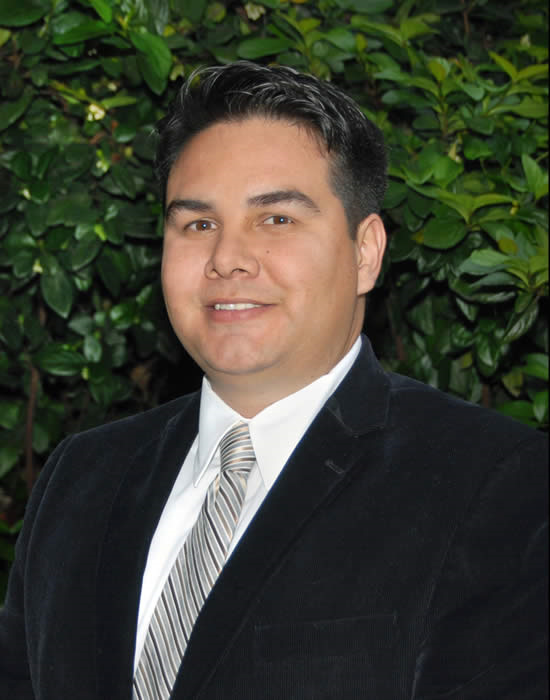
Mr. Richard Vasquez
Lodi-Galt
Area 4
|
|
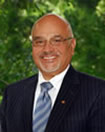
Mr. Steve Castellanos
FAIA, Northern District
Area 5
|
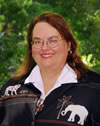
Teresa Brown, Ph.D.
Tracy
Area 6
|

Catherine Mathis, M.D.
Manteca/Escalon
Area 7
|
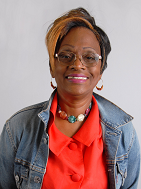
Ms. Marsha Fernando
Student Representative
|
Administration
Kathleen Hart, Ph.D.
Superintendent/President
Lisa Cooper Wilkins, Ed.D.
Assistant Superintendent/Vice President of Student Services
Salvador Vargas, M.S.
Interim Assistant Superintendent/Vice President of Instruction and Planning
Gerardo Calderón, M.L.I.S.
Vice President of Operations
Chris Nguyen, J.D.
Vice President of Administrative Services
DeAnna Solina, Esq.
Vice President of Human Resources and Risk Management
Ginger Holden, Ph.D.
Dean of Student Learning and Assessment
Julie Kay, M.S.N.
Acting Dean of Career Technical Education and Workforce Development
Delecia Robertson, M.B.A.
Dean of Counseling and Special Services
Angela Tos, Ed.D.
Dean of Enrollment Services and Student Development
Vacant
Dean of Regional and Distance Education
Jessie Garza-Roderick, Ed.D.
Associate Dean of South Campus at Mountain House
Delta College Foundation
San Joaquin Delta College is in the business of changing lives, creating opportunities, and contributing to the economic health and well-being of the region. The college depends on private support for scholarships and assistance in purchasing equipment and supplies for its programs. The Delta College Foundation has evolved through collaborative efforts of business, academic, and scholastic interests. It raises funds for student scholarships and solicits business and industry support for academic programs. The Foundation is a tax-exempt, non-profit corporation under IRS Code 501(c)3, and develops planned giving opportunities. It accepts gifts including cash, real estate, jewelry, art, stocks, bonds, mutual funds, and life insurance policies. For more information, visit the Delta College Foundation website.
Mission Statement
San Joaquin Delta Community College District serves the needs of students and the District community by providing excellent post-secondary education to the associate degree level, general education and preparation for transfer to other post-secondary institutions, career and technical education, economic development, and the development of intellectual autonomy. To achieve this objective, the faculty and staff are committed to offering high quality instructional programs, student services, and efforts to enhance the public good.
Using the institution’s governance and decision-making process, the institution reviews its mission statement on a regular basis and revises it as necessary. (BP 1200, 6/18/13)
Vision Statement
The faculty, staff, and students of San Joaquin Delta Community College District envision a community of lifelong learners, passionately pursuing and achieving ever-higher educational goals, and fully appreciating the diverse and dynamic world around them.
In fulfilling its mission and vision, San Joaquin Delta College acts upon the following principles:
- The Board of Trustees, faculty, staff, and students believe excellence requires
- Open and honest communication,
- Commitment to high academic standards,
- Respect for intellectual and ideological diversity,
- Appreciation of historical perspective,
- Appropriate application of advancing technologies,
- Investment in career and technical education, and economic and workforce development,
- A vital connection to the arts,
- Celebrating and embracing the cultural diversity of the community, and
- Opportunities for physical development and competitive athletics.
- Institutional renewal includes continuous improvement through
- evidence-based institutional research concerning student access, retention, success,
- effective methods of developing and revising educational programs and services,
- the study and application of effective methods of teaching and learning,
- commitment to clear outcomes and effective assessment to enhance student performance,
- the enhancement of appropriate student-centered support services,
- the effective application of technologies, and
- the continual professional development of all faculty and staff.
- Student success and equity at the post-secondary level may require appropriate developmental instruction as well as instruction in English as a second language, through an institutionally-integrated developmental education program that leads directly toward completion of a degree, certificate, and/or to transfer to another post-secondary institution, or viable employment.
- Appropriate educational resources are available to all qualified students.
- Delta College commits to encouraging good citizenship, responsible leadership, and wise stewardship of resources through ethical leadership, and respect for education as a lifelong endeavor.
(BP 1201, 6/18/13)
Accreditation
San Joaquin Delta College is accredited by the Accrediting Commission for Community and Junior Colleges of the Western Association of Schools and Colleges, 10 Commercial Blvd., Novato, CA. 94949, (415) 506-0234, an institutional accrediting body recognized by the Commission on Recognition of Postsecondary Accreditation and the U.S. Department of Education. The District has two educational centers recognized by the Commission to offer 50% or more of a degree or certificate program: the Stockton Campus at 5151 Pacific Avenue, Stockton, CA 95207 and the South Campus at Mountain House, 2073 South Central Parkway, Mountain House, CA 95391.
The College’s programs are fully accredited or approved by professional organizations and/or national and state agencies including:
- Accrediting Commission for Education in Nursing
- California Commission on Peace Officers Standards and Training
- California State Board of Registered Nursing
- California State Board of Vocational Nursing and Psychiatric Technicians
- California State Department of Education
- California State University
- National Automotive Technician’s Education Foundation
- University of California
Student Learning Outcomes
San Joaquin Delta College Philosophy on Student Learning Outcomes
The purpose of Student Learning Outcomes and Assessment (SLOA) is to improve student learning. It is driven by San Joaquin Delta College’s institutional mission and is a professional responsibility of faculty, staff, managers and administrators. Outcomes and assessments are primarily developed and implemented by faculty and student service professionals. SLOA requires that the institution provides clear and measurable outcomes, authentic learning experiences, and assessment of student learning that includes the systematic collection, collaborative analysis and interpretation, and use of assessment information to understand and improve teaching and learning.
Student Learning Outcomes for all programs and courses are published on the college web site: www.deltacollege.edu/department/student-learning-outcomes-and-assessment.
Institutional Learning Outcomes
San Joaquin Delta College is committed to providing students with the knowledge and skills necessary to succeed as productive members of society. Degree and certificate programs are designed to foster the development of students who demonstrate and apply the principles listed below.
- HUMAN CULTURE AND THE PHYSICAL WORLD
- Awareness and Appreciation of Social Institutions
- Understand the growth and evolution of social, political, economic, religious and cultural systems.
- Recognize the essential nature of the arts in affecting thriving cultures.
- Appreciate the primary significance of cultural diversity as a factor in the formation and success of society.
- Environmental Responsibility
- Understand how to use resources responsibly.
- Understand why human population growth is an important environmental issue.
- Understand how natural processes and human activities contribute to climate change.
- DISCIPLINE, CAREER, AND TECHNICAL COMPETENCE
- Discipline-specific knowledge
1. Develop knowledge of a discipline, set of related disciplines, or a career/technical field.
- Application and analysis of knowledge
1. Apply, analyze, synthesize, and evaluate concepts, principles, and practices in a variety of real-world settings.
- QUANTITATIVE, SCIENTIFIC, AND COMMUNICATION SKILLS
- Quantitative Competency
- Apply mathematical concepts and principles in a variety of real-world contexts.
- Demonstrate knowledge of fundamentals of 21st century economic, business, and personal financial concepts, principles, and processes and effectively apply it in real-world settings.
- Scientific Competency
1. Demonstrate knowledge of fundamental scientific principles, concepts, and processes (e.g., scientific method), and effectively apply it in real-world settings.
- Communication Competency
- Demonstrate effective and appropriate methods of communication (e.g., reading, writing, listening, speaking, signing, performing and visual arts, and utilizing electronic media).
- PERSONAL AND SOCIAL DEVELOPMENT
- Development and Demonstration of Responsibility: Personal; Civic and Social; Interpersonal and Intercultural
- Personal Responsibility.
- Demonstrate responsibility for ones own health, safety, and well-being.
- Develop economic self-sufficiency.
- Prioritize family, work, and leisure effectively.
- Manage the college experience to achieve academic and personal success.
- Set and achieve personal, educational, and life goals.
- Civic and Social Responsibility
- Demonstrate a commitment to public life through engagement in organizations.
- Exercise leadership and appropriate behavior as a member of groups.
- Practice ethical behavior through appropriate choices.
- Interpersonal and Intercultural Responsibility
- Act with civility and respect for people of diverse cultures, socioeconomic and political backgrounds, sexual orientations, disabilities, ideas, and viewpoints.
- Engage in meaningful relationships with peers, instructors, and others.
- Demonstrate cooperation and collaboration with others in academic, artistic, athletic, and other settings.
- LIFELONG LEARNING
- Information and Technological Competency
1. Find, evaluate, ethically use, and appropriately cite information in a variety of formats (e.g., print, multimedia, and electronic resources).
- Intellectual Competency
1. Think, reason, and reflect critically; generate questions and explore ideas; and analyze and synthesize information.
- Engagement in Lifelong Learning
- Update knowledge and skills to maintain currency in a discipline(s) or a career/technical field.
- Engage in learning for intellectual stimulation and recreational activities.
Facility Rental and Reservations
Holt Building, Room 242 - (209) 954-5427 / Events@deltacollege.edu
College facilities are available for use by students and staff of Delta College for non-instructional purposes. Requests for facility use may also be made by businesses, individuals, and community agencies. All requests for use of college facilities must be submitted to the Facilities and Reservations Specialist. Outside entities are required to provide an Insurance Endorsement and a Certificate of Insurance.
College Overview
Stockton Campus
Two key decisions were endorsed by the Board of Trustees in the fall of 1968. Though the campus would be one of the largest in California, the student population would be divided into five instructional centers. The design of each center included a central open courtyard, snack bar, and study lounge. The goal was to encourage students and faculty to develop activities according to their own interests, creating a healthy campus-wide diversity. The decision reflected the philosophy that all knowledge, as with all work, is worthwhile and not susceptible to “status.” Students with greatly different backgrounds and career interests-from musicians to mechanics-meet in the hallways, lounges, and classrooms, and learn to respect each other’s values.
A committee had initially recommended the names of deceased, local historical figures who had made significant contributions to education and the trustees agreed. Cunningham Center and a portion of Budd Center were the first buildings to open in 1973, with classes in physical education, life science, public safety and services, computer science, and printing.
Cunningham Center, named after Sheriff Thomas Cunningham of the late 1800s, opened in June 1973. The center included Clever Planetarium, the only planetarium in San Joaquin Valley.
Holt Center–named after Benjamin Holt, the developer of the belt tread tractor which helped make large-scale farming possible in this region’s peat soil–opened in the summer of 1974 and contained instruction in music, machine technology, heating and air conditioning, welding, and engineering. Today, the center houses the only community college electron microscopy lab in the nation.
Shima Center honors the memory of George Shima who left Japan in the 1880s after failing his university examinations and founded an agricultural empire on land reclaimed from Delta bog. Shima Center, which opened during the spring semester of 1975, offers instruction in agriculture, natural resources, broadcasting, visual arts, early childhood education, business, and photography. The L.H. Horton, Jr. Art Gallery provides exhibits and displays in creative artistry.
Budd and Locke Centers were completed in the fall of 1976, except for the vocational shops in Budd which had opened in conjunction with Cunningham Center in 1973. James Budd was the only Stocktonian to become Governor of California. The center houses physical education, athletics, and dance facilities, including the 3,000-seat Blanchard Gymnasium and June Fergusson Pool.
Locke Center honors Dr. Dean Jewett Locke, founder of Lockeford and the Lockeford School District. The center includes instruction in nursing, business, and drama. It includes Tillie Lewis Theatre as well as the 100-seat Alfred H. Muller Studio Theatre, named in 2013 to honor the highly-regarded former Professor of Drama. Adjacent to Locke Center is Warren Atherton Auditorium which seats over 1,400 guests and serves as a focal point for arts in the region.
Three other campus buildings also bear historical names: Goleman Library is named after Dr. Irving Goleman, a former Delta teacher and thinker who believed no one was truly educated without experiencing the liberal arts; Danner Hall honors Helen Danner, Associate Dean of Students at Delta until her death in 1970. Danner Hall contains the Academic Computing Center, main cafeteria, The Student Chef, a student-run gourmet restaurant, and College Bookstore. The perimeter roads connecting the different campus areas are named in honor of Dr. Burke Bradley, Burke Bradley Road in the south part of the campus and Burke Bradley Drive in the north. Dr. Bradley was President of Stockton College in 1956 and presided over the separation of San Joaquin Delta College from the Stockton Unified School District in 1963.
The first new building to be erected since the initial campus construction of the 1970s was the Child Development Center. Opened in 1994, during the presidency of Dr. L.H. Horton, Jr., it provides students and staff with a much needed place for child care and also serves the instructional Child Development program as a laboratory. The Delta College Child Development Center was rededicated in spring of 2016 in memory of longtime Dean and Career Technical Education advocate, Dr. Hazel Hill. Dr. Hill was instrumental in the development and construction of the center and for many years worked tirelessly in support of students pursing their educational goals. She had served the College and community for over 35 years as faculty, Division Chairperson, and Dean of Career Technical Education.
The Center for Microscopy and Allied Sciences was opened in fall of 2003 to house the long-established program in Electron Microscopy. The only program of its kind in the western United States, it trains technicians in the preparation of materials and operation of various electron microscopes.
Following the successful passage of a $250 million bond measure in 2004, planning for improvements of the Stockton Campus began. In 2009, the college established the Lawrence and Alma DeRicco Student Services Building which consolidated all student services functions, including the Offices of Admissions and Records, Financial Aid and Veterans Services, Guidance and Counseling, and Assessment Services, under one roof. Dedicated to one of Delta’s “Founding Fathers,” the building serves as the students’ gateway to the institution. In 2010, the state-of-the-art, Olympic caliber Merv Smith Track Complex was dedicated in early 2010 to honor the former track coach and long-time faculty member. Coach Smith led Delta teams to numerous championships from 1970-1997. This same year, the college refurbished the Goleman Library. A year later, the college dedicated the Bucky Layland Softball Complex and Lee Belarmino Sr. District Data Center.
The spring of 2014 saw the opening of the college’s new Science and Mathematics building. The building includes over 70,000 square feet of office, classroom, and laboratory space wrapped around a central service core with dry labs on the first floor, wet biology labs on the second, and chemistry labs on the third. The building is equipped with the latest equipment and technology expected in a modern college science facility. As the spring semester moved forward, regular visitors to the campus began to see Cunningham Center, the former science and mathematics building beginning to be prepared for demolition. By the end of 2014, the building had been razed and a new open plaza area was developed. In Spring 2015, the college dedicated the Shima expansion project, newly remodeled diesel and heavy equipment technology shops, and classrooms in Shima Center. From 2016 to 2018, a number of career technical education classroom renovations in the Holt and Budd Centers addressed critical safety and modernization improvements.
Other improvements enabled by the Measure L Bond include the following: a new greenhouse; restroom modernization and ADA compliance; safety and seating improvements in the Tillie Lewis Theater and Atherton Auditorium; and state-of-the-art facilities for student athletes and physical education classes, including a world-class track facility, new turf for the softball, baseball, and football fields, a new soccer pitch, and improved parking facilities. Using Measure L funds, the college has made a strong commitment to increase safety, visibility, and energy efficiency while reducing maintenance and operating costs. The main replacement projects include 10 elevators, exterior/interior light fixtures with energy efficient LED lighting, and improved lighting of pathway and parking lots. Other efforts to improve safety include removal of shrubbery and some trees along Pershing Avenue, and replacement of sections of existing wood posts and chain link fencing with new metal posts and chain link mesh at the west edge of the Athletics area along Pershing Avenue and at the swimming pool enclosure. The college also replaced cobblestone pathways as a means to remove barriers, improve safety, and ensure compliance with the Americans with Disabilities Act (ADA).
South Campus at Mountain House
South Campus at Mountain House (SCMH) encompasses approximately 126 acres north of Interstate 205 at the boundary of San Joaquin and Alameda Counties. Located at the southwest corner of Mountain House, the educational center is the result of a decade of efforts to expand service offerings to Tracy, Manteca, and South County students. Initial plans for SCMH called for an initial build-out of 85,000 square feet. The Board of Trustees postponed full-scale development of a large educational facility and built 25 modular buildings that freed up bond money for other projects on the Stockton campus and the future purchase or lease of property in the District’s northern region. The modular buildings have a useful shelf life of only 20 years, and the District needs to provide a more permanent structure that will serve the residents of the region more effectively. SCMH has been targeted in the educational master planning process to feature three signature programs: renewable energy, computer science, and engineering.
Manteca Center
Bordered by Highway 99 on the east and Lathrop Road on the south, the Manteca Center features two portable classrooms, a barn, and crop land that provide training to students in agriculture, agribusiness, and animal husbandry. With agriculture remaining one of the major economic industries of the region, the Center’s importance for local training cannot be overstated.
North County and Calaveras
In 2006, the District purchased a 140-acre parcel north of Lodi, near Galt (Liberty Road and N. Lower Sacramento Road parcels). District officials and consultants have completed a due diligence review of the site for use as an educational center. Delta has also requested proposals for other sites in the North County region that can accommodate 35,000 to 50,000 square feet of instructional space. The District recognizes the population growth within the region and its emerging labor market needs and, thus, seeks to develop an educational center in the North County area. The District is also increasing its limited course offerings in the Foothills region through collaboration with Calaveras County’s local high school district and Columbia College. Most of these students take courses online or commute to the Stockton campus. However, limited courses can be held in the evening in Calaveras Unified School District classrooms and through new dual enrollment opportunities.
History
The first junior college in California was established in Fresno in 1910, stirring interest in the concept across the state including attempts in Stockton in 1917, which failed due to inadequate enrollment, and in 1920, when the Stockton Board of Education formally agreed upon an institution but provided no funds. It was at College of the Pacific, a private, Methodist College located in Stockton since 1924, that the origins of San Joaquin Delta College began to emerge. In 1934 and under the direction of Dr. Tully Knoles and Dr. Dwayne Orton, head of the Pacific Speech Department, the College of Pacific Coordinating Committee recommended the formation of a lower division program to admit high school students not fully qualified for regular Pacific admission and for Pacific students who failed to maintain satisfactory performance. The committee put the plan into motion in February of 1934, naming Dr. Orton as principal of the College of the Pacific Junior College. The program’s courses were listed in the Pacific catalog of 1934-35, and 73 students were enrolled in the private junior college that fall. Thus began the formative years.
Pacific officials offered to turn the program over to the Stockton Board of Education, which was paying $30,000 annually for local students to attend distant public junior colleges, and just days before the start of the 1935 fall semester, the State Board of Education authorized the partnership between the two entities. Stockton Junior College was formed in the fall of 1935 with space and equipment rented from College of Pacific. Faculty from College of the Pacific taught classes but were employed and responsible to the Stockton Board of Education.
The success of the operation was so notable that Pacific abandoned freshmen and sophomore instruction in the spring of 1936, bequeathing all such instruction to the junior college. The two institutions shared facilities through World War II, when the junior college added another unique, although temporary, feature: running an aviation school in Nevada. Science instructor Dr. Arthur T. Bawden succeeded Dr. Orton in this period.
Successful leadership ensued with Dr. Bawden, followed by a triumvirate of three individuals - Lorraine Knoles, Burke W. Bradley, and Louis Windmiller in 1948.
Stockton Junior College became Stockton College in 1948, with Dr. Leon Minear as president and a total student body of just under 2,000. The physical change was even more evident, with classes being moved to a 43-acre site to the south of College of the Pacific’s campus. The educational pattern changed as well, as the Stockton school system restructured into six years of elementary instruction, four years of junior high, and an additional four years combining the junior and senior years of high school with the freshman and sophomore years of college. The physical separation of Stockton College and College of the Pacific was followed in 1951 by the recommencement of lower division class offerings at Pacific.
In the decade of the 1950s, the educational needs of the area became greater than the geographical focus of Stockton College. In 1952, Dr. Julio Bortolazzo took charge of the campus as the College began a different approach. It expanded its vocational programs and implemented the 6-4-4 plan. Dr. Burke Bradley, Jr., followed Bortolazzo as president after which San Joaquin Delta College became the successor to Stockton College. Legally separated from Stockton Unified School District in 1963, the College encompassed virtually all of San Joaquin County and portions of three other counties. Dr. Bradley remained as Superintendent/President of the newly formed San Joaquin Delta Community College District.
The separation from Stockton Unified School District made Delta College a tenant on land owned by SUSD. In 1966, a bond election failed to develop a multi-campus college district. In 1968-69, Dr. Bortolazzo returned for one year to head a successful bond campaign that provided funding for a portion of construction of a new $50 million campus. The Rio Vista-Isleton area in Solano County was annexed during this time as well.
Dr. Joseph Blanchard was named Superintendent/President of Delta College in 1969. He combined $19.8 million in construction bonds with funds from six other sources, and over the next seven years directed the building of Delta’s first permanent home.
With the addition of part of Calaveras County in the summer of 1976, the San Joaquin Delta Community College District grew to 2,300 square miles, larger than the states of Delaware or Rhode Island, and now serves approximately 23,000 students.
Dr. Blanchard’s retirement in 1976 prompted college trustees to make a nation-wide search for a new leader that resulted in the selection of Dr. Dale Parnell, former Chancellor of the San Diego Community College District and Superintendent of Public Instruction in Oregon. Dr. Parnell, resigned on July 1, 1981, to assume a position as president and chief executive officer of the American Association of Community and Junior Colleges.
In June of 1981, the Board of Trustees chose Lawrence A. DeRicco as Superintendent/President. Dr. DeRicco, a graduate of the old Stockton College, had been an educator and businessman throughout the District before serving as Delta College’s Business Manager and Vice President/Management Services for 18 years. Under Dr. DeRicco, the College entered a new era of limitations and consolidation with many foreseeable changes. During that time, DeRicco received an honorary Doctorate in Education from his alma mater, the University of the Pacific, for his contributions to the field of education. Dr. DeRicco retired in June of 1987 after 24 years of service to the District.
In 1987, Dr. L. H. Horton, Jr., was appointed Superintendent/President. During his tenure, he oversaw the construction of a new central plant and Child Development Center, and initiated the development of a new learning center in Tracy. Horton, the longest serving President to date, retired from the college in 1999 after 13 years of service.
The millennium brought a new Superintendent/President, Edward O. Gould, Ed.D, in February 2000 to guide the College into the 21st century. He had served as Vice Chancellor of Student Services at the California Community College Chancellor’s Office where he developed and recommended policy for the state’s 107 colleges and 71 districts in the areas of student services and services to special populations. He was also former Superintendent/President of Victor Valley College and Monterey Peninsula College.
Dr. Raúl Rodríguez joined Delta College in Fall 2002 as the next Superintendent/President. Under Dr. Rodríguez, a $250 million bond initiative was passed by the voters in 2004. The bond has been used to upgrade and expand the Stockton campus, establish and extend education centers in the College’s service area. After eight years, Rodríguez left to assume a new position as Chancellor of the Rancho Santiago Community College District.
In the spring of 2011, after a national search, the Board of Trustees named Dr. Jeff Marsee as the College’s ninth Superintendent/President. Dr. Marsee began serving the College on May 1, 2011. He served until February 2012 when Assistant Superintendent/Vice President of Instruction, Dr. Kathleen Hart was appointed Acting Superintendent/President. Eight months later, in October 2012, she was permanently appointed as the tenth Superintendent/President of the college.
Delta College is proud to serve an area that launched California into world prominence, for the Mother Lode era brought about the great western expansion.
|